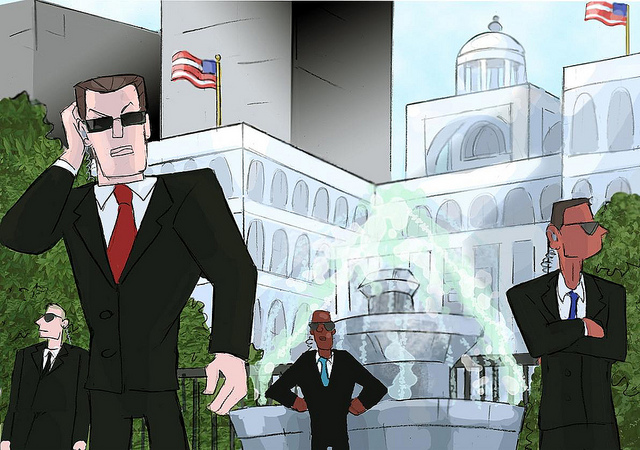Don’t Be the Agent of Your Own Destruction
You can’t control a number of things in a negotiation. You can’t control if a negotiation will happen. You can’t control what the other side will want from you. And you can’t control how you’ll feel about a negotiation.
But there is a lot you can control and influence in the negotiation.
If you only focus on what you can’t control you will have frustrating negotiations with less than stellar results. And that will partially be your fault.
Don’t be the agent of your own destruction.
Before we really get into this, I need to tell you two stories:
First
I was working with a client about how best to negotiate a rate increase. At the beginning of the conversation she admitted if the other side pushed back, she’d probably try to split the difference. So I asked her to explain to me what her interests in getting the increase were: why did she want that extra $ per hour?
She dutifully ticked off her interests and over the course of our ten minute conversation she explained in detail why the increase was important to her and her business. When I suggested we talk about how she’d approach bargaining over the price, she said, “No, wait, now that I’ve explained why I want this, and what it means, I’m a lot more invested in getting it.”
I beamed with pride.
Second
Being the hip, young thing I am in this city of hip, young things, I went to an event this week where people talked about art, making things, advocacy and community. One of the conversations was about how artists could make money off of their art. In the banter that ensued, someone said, “Well, like if a band is traveling in a rural area and they can’t make a $10 CD sale, drop it down to $5. At least that way you make a sale and you keep the fans happy.”
I had a delicious beverage in hand and so was disinclined to throw anything. This sort of statement makes a few hugantic assumptions that tick me off:
1. Artists can arbitrarily lower the price of what they sell their art for without any thought about covering the cost of the thing they made. And by cost I don’t just mean materials and packaging. I mean the labor, expenses, the shipping and, oh, yes, the value of the art itself.
2. Fans want to pay as little as possible for the art they buy, because, let’s face it art’s expensive.
3. The love and affection of an artist’s fans is, or should be, equal to the dollars necessary for gas, food, rent and making more art.
In negotiations you have the most control over two basic, and very important things: how well you prepare and the assumptions you make.
Prepare, Prepare, Prepare
The pop culture image of negotiation is usually some cowboy charging into a room, making demands, banging on a table and getting everything he wants, no exceptions.
Well that’s silly.
If you don’t prepare for a negotiation, it’s very easy to look at what you want as a position.
A position has no force behind it , it is just a thing that you want. It’s much easier to bargain over a position than it is to compromise an interest.
Luckily, it’s easy to uncover the interests behind your positions and make your negotiation position stronger. Before you charge into that room or pick up the phone, take at least thirty minutes and figure out not only what you want to get out of the negotiation, but why you want those things.
Does it free you up to work with clients who pay you more? Does it mean you can afford new equipment? Does it allow you to hold your head high and feel like a professional?
All of those interests are important. Understanding that these are the reasons you want what you’re asking for will help you stand up for yourself during a negotiation. It will also help you identify (and avoid) things that may seem shiny but don’t actually get you closer what’s important to you.
Start With This Assumption: What You Do Is Valuable
Creating art is valuable. Being a freelancer with an expertise is valuable. Being able to come in, fix a problem on a deadline and move on is valuable.
The assumptions you take into a negotiation show, whether you announce them or not. They impact the things you ask for, the concessions you accept and how hard the other side will push.
There is this weird idea that freelancers or artists aren’t really in business; they’re in some sort of magical land where getting recognition is foremost and getting paid is extra. Now, I’m not saying it isn’t valuable to have recognition, from fans or clients, but it’s your decision as to what the value of that recognition is to you. It’s your decision if that recognition can take the place of being paid and, if it can, in what situations that substitution applies.
So, don’t walk into a negotiation assuming that because you’re an artist or a freelancer you will have to accept less. Don’t assume that to have a shot at what you want to do you’ll have to compromise your interests and values. Don’t assume that you can ignore the math behind the money and it’ll all work out in the end.
Being an artist or freelancer is hard work. It can also be incredibly rewarding work. Honor yourself and your career by starting with the assumption that what you do is valuable and deserves respect.
By preparing for negotiations and making positive assumptions about the value and importance of what you do, you set yourself up for better negotiations with better outcomes. Controlling these two things will help you be an agent of exceptional opportunities and outstanding achievements.
Categories: Self Awareness Tools
Tags: Freelance, interests, Negotiation, Psychology
« Good Advice #10: How to Negotiate a Contract When You’re Running Out of Time






Great post. These are things I would advise clients to do before a mediation as well (which is just a facilitated negotiation). Well said!